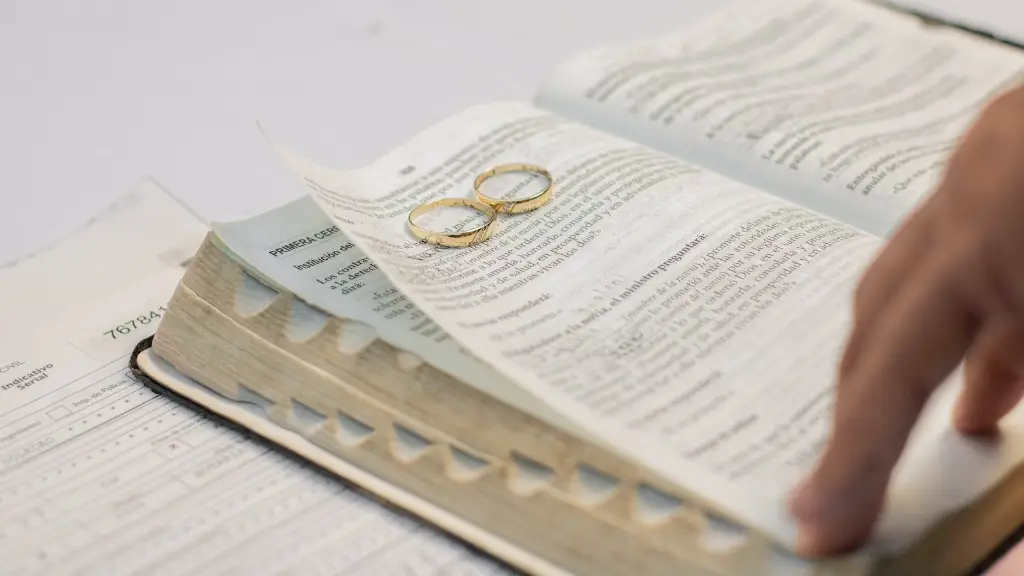What Is The Year Of Jubilee In The Bible?
The Year of Jubilee is one of the most significant Biblical events, mentioned in the book of Leviticus. In Leviticus 25, it is described as a year of liberty and freedom for all people, and also a time for reclaiming what was lost. This is a time of special joy and celebration for the Israelites, who are celebrating the release of their captives, the return of their land, and the release of their debts. The concept of Jubilee is based on the ancient Hebrew understanding of freedom, and the year of Jubilee was a time of great celebration and rejoicing.
The Year of Jubilee was observed annually, seven times every fifty years. During this time, the Israelites were mandated to observe the Sabbatical Year, which was a time of rest and abstaining from work. On the tenth day of the seventh month, Tishri, the Year of Jubilee was officially declared. During this period, all slaves were liberated, all debts were to be remitted and nullified, land that had been sold before was restored and returned to its original owners, and all offerings and sacrifices to God were provided for.
In the days of Moses, the Year of Jubilee was a major event for the Jewish people, as it served as both a reminder of their deliverance from Egypt and as a celebration of the covenant Mosaic Law. During the event, special sacrifices were made to the Lord and a grand national feast was held. The Year of Jubilee was a time for the entire nation to come together and celebrate the blessings of Yahweh.
The Covenant of the Year of Jubilee is an important part of the Jewish faith. It is believed that the Lord promised the people of Israel that if they would obey His commandment, diligently care for their land and observe the Sabbatical year, He would make the land of Israel a holy place, free of temptation and idolatry. The Lord also promised them prosperity and security as they remain faithful to Him and His laws.
Isaiah refers to the Year of Jubilee as a time when “the captives will rejoice, and the liberated will return with joy.” This passage is a reminder of the eternal freedom that God gave to His people. Understanding this sacred covenant allows ancient Israelites to understand the significance of freedom and liberty, and how it relates to daily life.
The Year of Jubilee also serves to remind us of the importance of personal liberty and keeping our commitments to the Lord and His laws. We must strive to live our lives in accordance with God’s commands and to show love and respect to our fellow man. In the Year of Jubilee, true freedom is found when we choose to make God’s laws and values a priority in our lives.
Conceptualising The Year Of Jubilee
The Year of Jubilee is a concept that has had great importance in Israel since the days of Moses. It was a time of great rejoicing and celebration, and it served as a reminder of both God’s deliverance from slavery in Egypt and of His promises to His people. As part of this celebration, the Israelites engaged in various activities such as the offering of sacrifices, the observance of the Sabbatical Year, and the return of lost land.
The concept of Jubilee is based on the ancient Hebrew understanding of freedom, which focused on the relationship between God and His people. In the Hebrew texts, freedom is often associated with the concepts of justice and righteousness. To live in freedom is to live according to God’s laws and commandments and to maintain a relationship with Him that is based on obedience, love and reverence. Therefore, the concept of Jubilee was a way for the Israelites to remember that they were free to live according to God’s will and commandments.
During the Year of Jubilee, the Israelites celebrated their freedom and the protection from captivity that God had provided. They engaged in activities such as the offering of sacrifices, the observance of the Sabbatical Year, and the return of lost land. They also observed special times of rejoicing, in which they celebrated the covenant between God and them. In a time when national identity was still forming, these activities served as a reminder of who the Israelites were, their relationship to God, and their place in the world.
The Year of Jubilee is a concept that has been celebrated for thousands of years by the people of Israel. It serves as a reminder of the importance of freedom and justice, and of the relationship between God and His people. It is a time of celebration and rejoicing, as the Israelites remember their past and look forward to their future with hope and promise.
Comparisons With Other Religious Observances
The Year of Jubilee has been compared to other religious observances, such as the Passover, regarding the common themes of freedom and deliverance. The Passover is a holiday during which the Jewish people remember the Exodus from Egypt and their deliverance into the Promised Land. Similarly, the Year of Jubilee is a time for the Israelites to remember the freedom that God gave to them as His children. The ritual practices associated with the Year of Jubilee—the offering of sacrifices, the observance of the Sabbatical Year, and the return of lost land—all reflect the freedom and justice associated with the concept of deliverance.
The Year of Jubilee is also compared to the Islamic festival of Eid al-Fitr, which marks the end of Ramadan, the month of fasting. Similarly, the Year of Jubilee is a time when the Israelites celebrate the end of their labor and their deliverance into the Promised Land. Although the two observances differ in terms of their specific practices, they both share a common focus on the concept of deliverance and freedom.
The Year of Jubilee is an important part of the Jewish faith and a reminder of the freedom that God gave to His people. Although the Year of Jubilee has been compared to other religious observances, it has its own unique meaning and purpose. It serves as a reminder of God’s deliverance and provision, and encourages the Israelites to celebrate and be thankful for their freedom.
Historical Significance
The Year of Jubilee has been celebrated by Jews for thousands of years. Throughout Jewish history, this time of celebration and rest has served as a reminder of their deliverance from slavery in Egypt and of their status as God’s chosen people. As such, it is a holiday that has not only been observed for its religious significance, but also for its social, political and economic implications.
From a historical perspective, the Year of Jubilee has had great economic significance. During this time, all debts were to be remitted and nullified, and land that had been previously sold was to be restored to its original owners. This was a radical concept at the time, as it overturned the traditional order of society by favoring the poor and weak. Moreover, by proclaiming a Year of Jubilee, the political system was reset, allowing for a redistribution of land and resources to more equitable terms.
The Year of Jubilee is an important part of the Jewish faith and has always been celebrated as a time of freedom and justice. From a historical perspective, it also provided economic and social stability, as it allowed for the redistribution of land and resources, and reset the political structure. This is why the Year of Jubilee is still celebrated today, as a reminder of the value and importance of freedom and justice.
Social Representation Of Jubilee
The Year of Jubilee is a deeply symbolic holiday for the Jewish people, representing a time of rejoicing and celebration. It was a time when God showed His faithfulness and mercy to His people, as they were set free from slavery and given a new hope. This experience of liberation has been used by many societies throughout history, as a way of encouraging freedom and justice. As such, many of the concepts and symbols associated with the Year of Jubilee have become deeply ingrained in the Jewish collective consciousness.
In modern times, the Year of Jubilee has become an important social and political symbol for Judaism, as well as for other groups of people advocating for freedom and justice. By emphasizing themes of liberty, equality and solidarity, it has become a powerful rallying cry for many people fighting for a more just and equitable society. Organizations such as the American Civil Liberties Union have used the concept of the Year of Jubilee to make the case for greater freedom of speech and religion. The jubilee symbol has also been invoked by political movements advocating for social and economic justice.
The Year of Jubilee is an important religious observance and a potent symbol of liberation and hope. Throughout history, it has served as a reminder of the importance of freedom and justice, and has been used by many people as a way of advocating for a more just and equitable society. In modern times, the Year of Jubilee continues to be a powerful symbol of freedom and justice, inspiring people to fight for a more equitable world.
Jubilee In Today’s World
In today’s world, the Year of Jubilee still holds great meaning and significance for the Jewish people. It is a time of great celebration and rejoicing, as the Israelites remember their deliverance from slavery and the blessing of freedom. It is also a time for many people to reflect on their own lives and to renew their commitment to living in accordance with God’s laws and values. As such, the Year of Jubilee is an important reminder of the power of freedom and justice and a source of hope for people around the world.
In recent years, the concept of the Year of Jubilee has taken on a wider meaning and has been used by people of many religious backgrounds to advocate for greater justice and equality in their own societies. It has become a symbol of renewal and hope, representing freedom and justice for all people. As such, it is a reminder of the need to fight for a more equitable world and to strive for a society in which everyone is free and respected.
The Year of Jubilee is still an important event in the Jewish tradition, and it continues to be celebrated as a source of hope and celebration. As part of this observance, Jewish people remember the freedom that God gave them and the blessings of justice that come with it. By reflecting on this holiday, we are reminded of our own responsibility to live according to God’s laws and to fight for a more equitable world.





